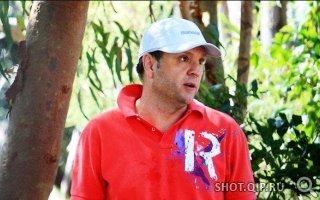Who suffers when the tax catches whales?
A great story in the Australian game circles. Last week, the Australian tax (ATO) checked the world's largest gambler, Zelko Ranojazhech and members of his private gaming club. Somehow, this "club" managed to convince tax officials that they are just a bunch of risky guys who are lucky to avoid having to pay taxes on income, because in their understanding this is not business. But the details of their work show that their group is anything but a bunch of lovers. He was born in Hubbort, this 50-year-old son of Croatian emigres runs an empire that makes bets on races at an astounding sum, 1 billion a year.
Tax tried to get to know the cases of Ranojazhech and as he reported they demanded $ 900 million in taxes, fines and penalties over the past 10 years.
This modest description does not give an estimate of the scale of his enterprise. The syndicate employs about 300 people. In its branches, Habart and Sydney play games at horse racing in Japan, Hong Kong, Britain, Australia and the USA. His betting system is based on computer models that use complex algorithms that make thousands of bets on millions of dollars in the last minutes before the start of the races.
Such opportunities are not available to ordinary players and threaten to undermine the game racing industry.
These guys in any case can not be classified as amateurs - hundreds of people work for them, with the help of trading a whole complex of mathematically based game models is used, shoveling rates by 1 billion a year.
This was the scope of Zelko and his club. They did not play on trifles, but put a lot, very much, getting incredible profits.
But it seems no one took into account the potential influence of his group on other participants in the Australian gaming market, namely Betfar.
Australian bookmakers know the size of the accounts and the possibility of the syndicate, but none of them will not shed tears if they stop playing. It is common knowledge that the Zelko Club has the largest accounts on Betfar and, due to the new premium costs, they were the largest payers for Betfar Australia, a business sector that suffered from low profits from the very beginning of the foundation. Competition, along with restrictions on the in-game sports betting, poker and casino games made Betfar wait a long time until they gain a critical mass and unwind.
The end I did not understand, but it's likely that Betfar Australia will have to be very tight if this money leaves them and they still have to pay an additional 1.5% of the total turnover of rates due to the lawsuit with NSW.
